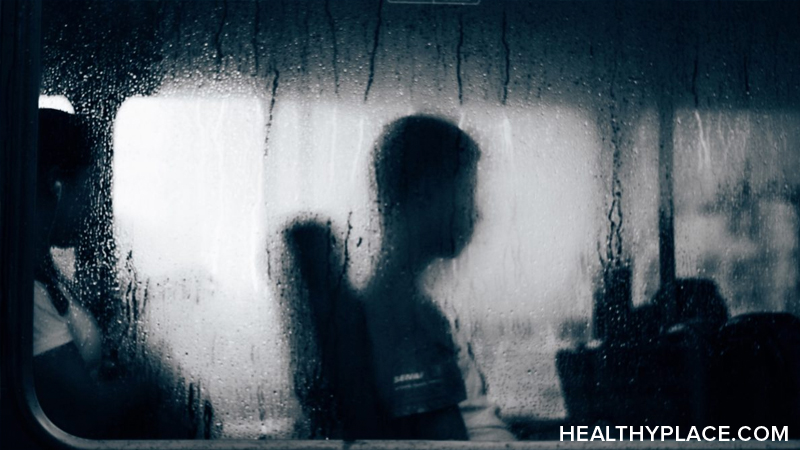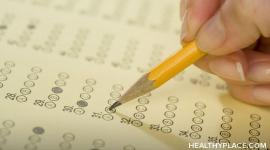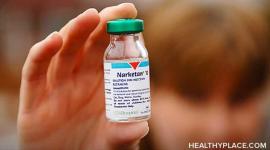What Does Bipolar Depression Feel Like?

Bipolar depression feels slightly different for everyone. Some people experience extreme and prolonged periods of depression, while others report minor to moderate dips in mood following a manic or hypomanic episode. For some, depression is manageable with the right treatment and lifestyle, but for others, it can be debilitating. All people with bipolar disorder experience depression at least once, as it is part of the diagnostic criteria, but what does bipolar depression feel like?
What Does Bipolar Depression Feel Like in Bipolar I and II?
What does bipolar depression feel like? That depends on who you ask. Bipolar depression feels different from regular depression because it is accompanied by periods of mania or hypomania.
Like many other mental and physical health conditions, bipolar disorder exists on a scale. We all experience periods of low moods and times where we feel more energetic and elevated, but in people with bipolar disorder, the two ends of the scale are more extreme. Episodes of depression and mania (or hypomania) can be triggered, or else they can occur with no apparent cause.
There are three main types of bipolar disorder, and depression symptoms vary between diagnoses.
- Bipolar I
In bipolar type I, people typically experience dramatic highs and lows. Periods of depression may be chronic and debilitating. Like regular depression, bipolar depression is characterized by low energy, extreme fatigue, "brain fog," crippling guilt, self-doubt and lack of interest in activities and daily tasks. People with bipolar type I are also at risk of suicidal thoughts and actions.
- Bipolar II
Many people with bipolar disorder experience more depressive episodes than manic ones. For bipolar type II, the ratio of time spent in depression versus hypomania is 35:1. This is one of the main differences between bipolar I and II, along with “up” periods never meeting the criteria for full-blown mania.
- Cyclothymia
In cyclothymia, people tend to cycle between short periods of mild depression and hypomania. Cyclothymic depression is not as severe as bipolar depression, but that doesn’t mean it’s easy to deal with. Antidepressant medications and mood stabilizers can be used to treat cyclothymia. People with cyclothymia have a 15-50% risk of developing bipolar disorder, so it is important to report any new symptoms to your doctor if you have this condition.
Living With Bipolar Depression
Living with bipolar depression isn’t easy. Not only can depression be debilitating, but combined with episodes of mania or hypomania, it is also exhausting and unpredictable. Someone with bipolar disorder may wake up one day unable to get out of bed due to severe depression, but they may be energetic, restless and impulsive the next.
Some people with bipolar disorder also experience rapid cycling, in which there is a pattern of distinct and short-lived episodes of mania and depression. For an individual to be diagnosed with rapid cycling bipolar disorder, they would have to experience four or more depressive, manic or hypomanic episodes in one year. This is mentally and physically exhausting and can lead to other issues such as substance abuse, financial problems, over or undereating and relationship troubles. Living with bipolar depression and maintaining a job, home and solid relationships can be extremely difficult.
Bipolar depression is often confused with unipolar or "regular" depression because there are more depressive episodes than manic ones. Hypomania can also be confused with feeling "normal" or energized. People with bipolar disorder don’t always respond to antidepressants, so they may be misdiagnosed with treatment-resistant depression (TRD) rather than bipolar depression, meaning they don’t always get the right support and treatment.
Tips for Coping With Bipolar Depression
- Learn your triggers: Knowing your bipolar depression triggers can help you avoid depressive episodes. Many people with bipolar depression stick to a daily routine, make sure they get enough sleep and avoid alcohol and non-prescription drugs to manage their symptoms.
- Do your research: Understanding your illness is key to learning how to manage it. If you know the patterns and symptoms to watch out for, you can put support systems and tools in place to help you get through depressive episodes and minimize their impact on your life.
- Eat well: Studies show that what you eat really does influence your mental health. Talk to your doctor about maintaining a healthy diet and make sure there are no foods you should avoid if you are taking any medications.
- Build a support system: Have a list of numbers you can call if your depression becomes severe. Have these numbers on your speed dial so you can find them easily. These might include bipolar disorder support groups, friends and relatives, hotline numbers, your doctor and your therapist. Don’t be afraid to reach out to the Suicide Prevention Lifeline (1-800-273-8255) or the emergency services in a crisis.
- Create an emergency depression kit: When you're feeling well, make a list of all the things that help you when you're in a depressive episode. These might be your favorite books, TV shows, songs, takeout, or reading letters from friends. Refer to this list when depression strikes.
However you experience bipolar depression, there are ways to manage your symptoms and make living with bipolar depression a little easier.
APA Reference
Smith, E.
(2021, December 28). What Does Bipolar Depression Feel Like?, HealthyPlace. Retrieved
on 2026, March 3 from https://www.healthyplace.com/bipolar-disorder/bipolar-depression/what-does-bipolar-depression-feel-like



